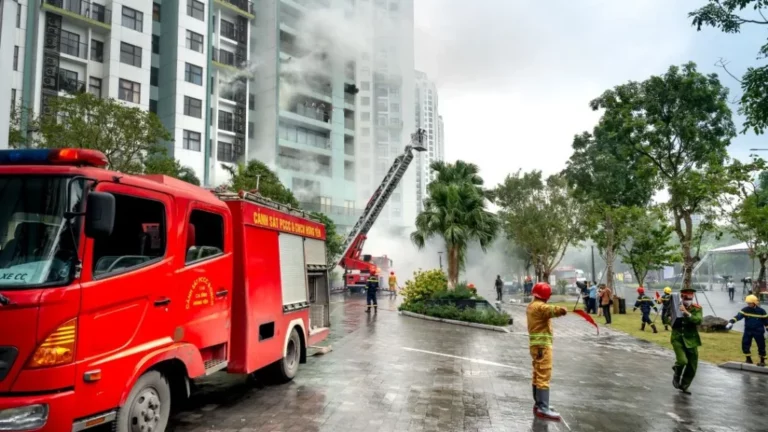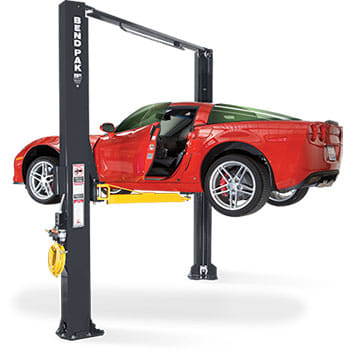Types of Engineering Insurance
Types of Engineering insurance, Engineering insurance is a specialized branch of insurance designed to address the unique risks associated with engineering projects, construction sites, and the operation of machinery and equipment. This type of insurance is essential for protecting both the financial interests of companies involved in engineering projects and the safety of workers and the public. Engineering insurance can be categorized into various types, each tailored to cover specific risks and phases of an engineering project. This article delves into the different types of engineering insurance, providing a comprehensive overview of each, along with their importance and typical coverage.
. Contractor’s All Risks (CAR) Insurance
Contractor’s All Risks (CAR) insurance is one of the most common types of engineering insurance. It is designed to cover property damage and third-party injury or damage claims during the construction of a project. CAR insurance is typically taken out by contractors and can also cover subcontractors.
Coverage
CAR insurance typically covers:
- Material Damage: This includes physical loss or damage to the construction works, such as fire, theft, vandalism, natural disasters, and accidents during construction.
- Third-Party Liability: This covers legal liability for accidental injury or damage to third parties, including members of the public and other property owners.
- Additional Coverages: Optional extensions can include coverage for temporary buildings, construction plant and machinery, and professional fees.
Importance
CAR insurance is crucial for protecting contractors from significant financial losses due to unexpected events during the construction phase. It ensures that projects can continue without major financial setbacks, thus maintaining project timelines and budgets.
. Erection All Risks (EAR) Insurance
Erection All Risks (EAR) insurance is similar to CAR insurance but is specifically designed for projects involving the erection and installation of plant and machinery. It is commonly used for projects like power plants, manufacturing facilities, and large industrial equipment installations.
Coverage
EAR insurance typically covers:
- Material Damage: This includes physical loss or damage to the erection works, such as fire, explosion, lightning, and other accidental damages.
- Third-Party Liability: Coverage for legal liability arising from injury or damage to third parties during the erection process.
- Testing and Commissioning: Coverage is often extended to include the testing and commissioning phase of the equipment being installed.
Importance
EAR insurance provides financial protection for companies involved in the erection and installation of large and complex machinery. It ensures that projects can proceed smoothly even in the event of significant damage or loss during the erection phase.
. Machinery Breakdown Insurance
Machinery Breakdown Insurance is designed to cover sudden and unforeseen physical loss or damage to machinery and equipment used in industrial operations. This insurance is vital for manufacturing plants, processing industries, and other businesses that rely heavily on machinery.
Coverage
Machinery Breakdown Insurance typically covers:
- Physical Damage: Coverage for sudden and accidental damage to machinery caused by electrical or mechanical breakdowns.
- Refrigeration Equipment: Coverage for equipment used in refrigeration processes, which is critical for industries like food processing.
- Boilers and Pressure Vessels: Coverage for damage to boilers and pressure vessels, including explosions and implosions.
Importance
This type of insurance is essential for minimizing downtime and financial losses caused by machinery failures. It ensures that businesses can quickly repair or replace damaged equipment, maintaining productivity and reducing operational disruptions.
. Electronic Equipment Insurance
Electronic Equipment Insurance provides coverage for various types of electronic equipment used in different sectors, including IT, telecommunications, medical, and broadcasting. This insurance is crucial for businesses that depend on electronic equipment for their operations.
Coverage
Electronic Equipment Insurance typically covers:
- Physical Loss or Damage: Coverage for accidental damage, theft, fire, and other perils affecting electronic equipment.
- Data and Software: Optional coverage for data loss and software damage, which is critical for IT and telecommunications companies.
- Portable Devices: Coverage for portable electronic devices such as laptops, tablets, and mobile phones used by employees.
Importance
Electronic Equipment Insurance is vital for protecting businesses from significant financial losses due to damage or loss of electronic equipment. It ensures continuity of operations and protects critical data and software from unforeseen events.
. Boiler and Pressure Vessel Insurance
Boiler and Pressure Vessel Insurance is specialized coverage for boilers, pressure vessels, and other equipment that operates under high pressure. This type of insurance is crucial for industries such as manufacturing, power generation, and chemical processing.
Coverage
Boiler and Pressure Vessel Insurance typically covers:
- Physical Damage: Coverage for damage caused by explosions, implosions, overheating, and other mechanical failures.
- Third-Party Liability: Coverage for legal liability arising from injury or damage to third parties caused by boiler or pressure vessel failures.
- Inspection Services: Regular inspections to ensure compliance with safety regulations and prevent potential failures.
Importance
This insurance is essential for mitigating the risks associated with operating high-pressure equipment. It ensures that businesses can manage the financial impact of equipment failures and comply with safety regulations, thereby protecting employees and the public.
. Civil Engineering Completed Risks (CECR) Insurance
Civil Engineering Completed Risks (CECR) insurance provides coverage for completed civil engineering projects such as bridges, roads, tunnels, and dams. This type of insurance is important for protecting these structures against potential damages after their completion.
Coverage
CECR insurance typically covers:
- Material Damage: Coverage for physical damage to the completed structures caused by natural disasters, accidents, and other unforeseen events.
- Maintenance Period Coverage: Optional coverage for defects and damages that occur during the maintenance period following project completion.
- Third-Party Liability: Coverage for legal liability arising from injury or damage to third parties caused by defects or failures of the completed structures.
Importance
CECR insurance is crucial for protecting the investments made in large-scale civil engineering projects. It ensures that these structures are safeguarded against potential damages, thereby preserving their functionality and safety.
. Contractors Plant and Machinery (CPM) Insurance
Contractors Plant and Machinery (CPM) insurance provides coverage for plant and machinery used in construction projects. This type of insurance is essential for contractors who rely on heavy machinery for their operations.
Coverage
CPM insurance typically covers:
- Physical Damage: Coverage for accidental damage, theft, fire, and other perils affecting construction plant and machinery.
- Transit Risks: Coverage for damage or loss of machinery during transit to and from construction sites.
- Breakdown Coverage: Optional coverage for mechanical and electrical breakdowns of machinery.
Importance
CPM insurance is vital for protecting the significant investments made in construction machinery. It ensures that contractors can quickly repair or replace damaged equipment, minimizing project delays and financial losses.
. Advanced Loss of Profits (ALOP) Insurance
Advanced Loss of Profits (ALOP) insurance, also known as Delay in Start-Up (DSU) insurance, provides coverage for financial losses resulting from delays in the completion of construction or engineering projects. This type of insurance is important for project owners and financiers.
Coverage
ALOP insurance typically covers:
- Delay Costs: Coverage for additional costs incurred due to project delays, such as extended financing costs and additional site overheads.
- Lost Revenue: Compensation for lost revenue or profits due to the delayed commencement of business operations.
- Force Majeure Events: Coverage for delays caused by events beyond the control of the insured, such as natural disasters and political risks.
Importance
ALOP insurance is crucial for managing the financial risks associated with project delays. It ensures that project owners and financiers can recover lost profits and additional costs, maintaining the financial viability of the project.
. Professional Indemnity Insurance
Professional Indemnity Insurance (PI) provides coverage for legal liability arising from professional negligence or errors and omissions by engineers and other professionals. This type of insurance is essential for consulting engineers, architects, and other professionals involved in engineering projects.
Coverage
Professional Indemnity Insurance typically covers:
- Legal Defense Costs: Coverage for the legal costs incurred in defending against claims of professional negligence.
- Damages and Compensation: Coverage for damages and compensation awarded to third parties due to professional errors or omissions.
- Breach of Duty: Coverage for claims arising from a breach of professional duty, including failure to meet project specifications and standards.
Importance
PI insurance is vital for protecting professionals from the financial consequences of claims arising from their professional services. It ensures that they can defend against legal claims and compensate affected parties, maintaining their professional reputation and financial stability.
. Environmental Liability Insurance
Environmental liability Insurance provides coverage for legal liability arising from environmental damage caused by engineering projects and industrial operations. This type of insurance is crucial for companies involved in activities that pose environmental risks.
Coverage
Environmental Liability Insurance typically covers:
- Cleanup Costs: Coverage for the costs of cleaning up environmental contamination, including soil and water pollution.
- Third-Party Liability: Coverage for legal liability arising from injury or damage to third parties due to environmental pollution.
- Regulatory Fines and Penalties: Coverage for fines and penalties imposed by regulatory authorities for environmental violations.
Importance
Environmental Liability Insurance is essential for managing the financial risks associated with environmental damage. It ensures that companies can cover the costs of cleanup and compensation, maintaining compliance with environmental regulations and protecting their financial interests.
. Business Interruption Insurance
Business Interruption Insurance provides coverage for financial losses resulting from interruptions to business operations due to insured events. This type of insurance is important for engineering firms and contractors to maintain their financial stability during disruptions.
Coverage
Business Interruption Insurance typically covers:
- Lost Income: Compensation for lost income due to interruptions in business operations caused by insured events, such as property damage or machinery breakdown.
- Additional Expenses: Coverage for additional expenses incurred to continue business operations or mitigate the impact of the interruption.
- Extended Indemnity Period: Optional coverage for financial losses that continue beyond the initial period of interruption.
Importance
Business Interruption Insurance is crucial for protecting businesses from significant financial losses due to unexpected disruptions. It ensures that companies can maintain their financial stability and continue operations during recovery periods.
. Cyber Liability Insurance
Cyber Liability Insurance provides coverage for financial losses and legal liabilities arising from cyber incidents, such as data breaches and cyber-attacks. This type of insurance is increasingly important for engineering firms that rely on digital systems and data.
Coverage
Cyber Liability Insurance typically covers:
- Data Breach Costs: Coverage for the costs of responding to data breaches, including notification, credit monitoring, and public relations expenses.
- Cyber Extortion: Coverage for ransom payments and associated costs in response to cyber extortion demands.
- Legal Liability: Coverage for legal defense costs and damages resulting from claims of data breaches and cyber incidents.
Importance
Cyber Liability Insurance is essential for protecting businesses from the growing risks of cyber threats. It ensures that companies can manage the financial impact of cyber incidents and maintain their reputation and operational integrity.
Conclusion on Types of Engineering Insurance
Engineering insurance encompasses a wide range of specialized insurance products designed to address the unique risks associated with engineering projects, construction sites, and the operation of machinery and equipment. From Contractor’s All Risks (CAR) and Erection All Risks (EAR) insurance to Machinery Breakdown and Electronic Equipment insurance, each type provides crucial coverage tailored to specific needs.
The importance of engineering insurance cannot be overstated. It ensures that projects can proceed without major financial setbacks, protects businesses from significant financial losses, and helps maintain safety and compliance with regulatory standards. As engineering projects become more complex and technology-driven, the role of specialized insurance in mitigating risks and ensuring financial stability will continue to grow.
Businesses involved in engineering and construction should carefully assess their insurance needs and work with experienced insurance providers to obtain the appropriate coverage. By doing so, they can safeguard their investments, protect their workforce, and ensure the successful completion of their projects.






